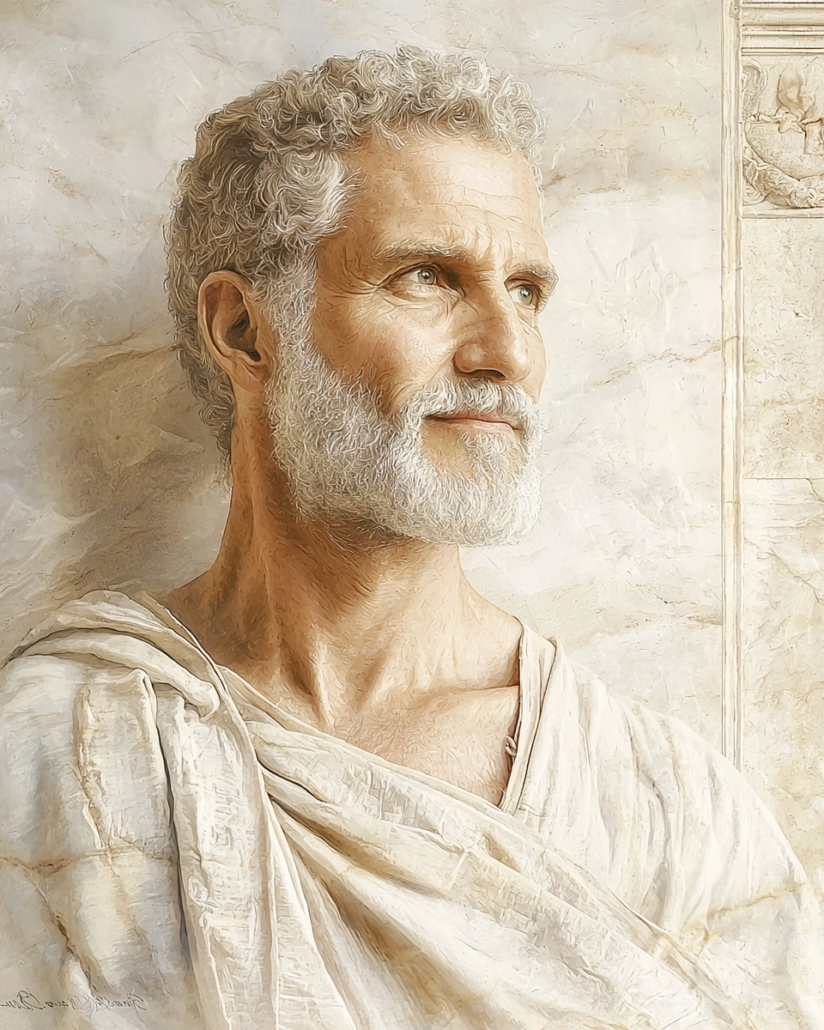Antipater of Tyre: A Friend of Cato and Teacher of Practical Ethics ⚖️
Antipater of Tyre (c. 100–45 BC) was a Stoic philosopher known for his writings on practical ethics. As a close friend of Cato the Younger, he embodied the connection between Stoic theory and lived virtue.
Historical Context and Influence
Antipater lived during the final decades of the Roman Republic, a time of increasing political corruption and instability. While Rome’s elite indulged in excess and intrigue, he and Cato stood for discipline and moral integrity. His writings emphasized ethics not as an abstract concept but as a guide for daily life. More on the history of Stoicism
Why Is Antipater Still Relevant Today?
His focus on practical ethics shows that philosophy is not just a theoretical exercise but a roadmap for everyday decision-making. He reminds us that true wisdom is revealed in action—especially in times of uncertainty. More on modern Stoicism
Core Teachings
- Ethics must be practical: True philosophy is demonstrated through actions, not just words.
- Integrity as a virtue: Like Cato, he believed that an honorable person should remain incorruptible, no matter the circumstances.
- Improving society: Stoic principles should not only serve the individual but also benefit the greater community.
Legacy
- His writings on practical ethics influenced later Stoics, including Seneca.
- As a friend and advisor to Cato, he helped shape a political philosophy admired to this day.
- He demonstrated that philosophy is not just for scholars but a guide for everyone.
Virtues Embodied
- Wisdom: He saw ethics as a practical tool for daily life.
- Courage: In a time of political instability, he remained steadfast in his principles.
- Justice: He advocated for a moral and fair society.
- Temperance: He taught that self-control is the foundation of virtue.
Quotes from Antipater of Tyre
“True philosophy is shown in actions, not in words.”
“An honorable man remains steadfast, even as the world crumbles around him.”
“Lived ethics is the only ethics that matters.”
More Stoic wisdom: Stoic Quotes
Please Note
Stoic exercises and practices are meant to inspire, not instruct. For personal guidance, please consult an expert. Stoic Practices: Disclaimer


